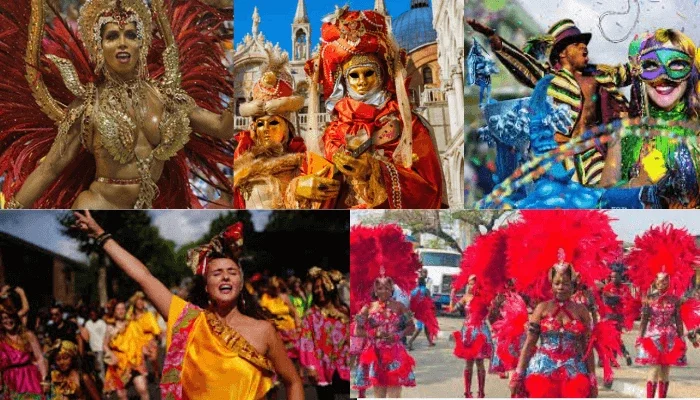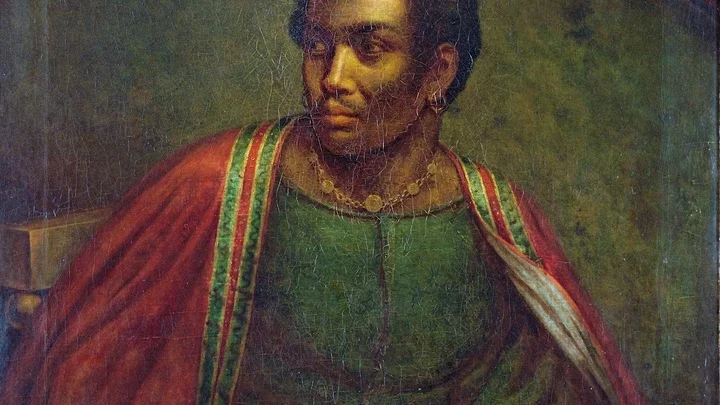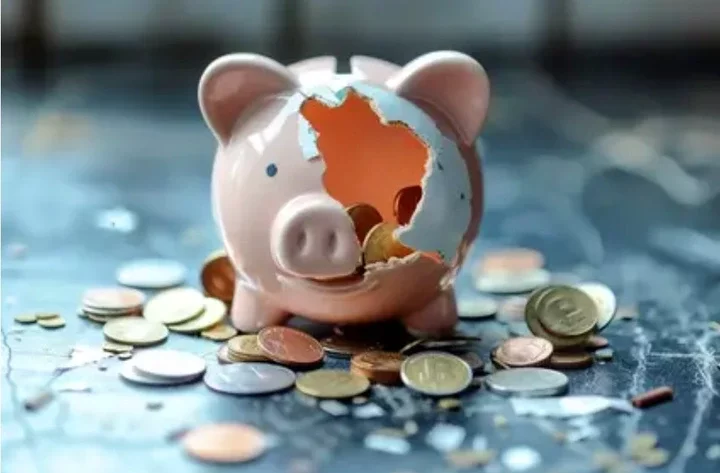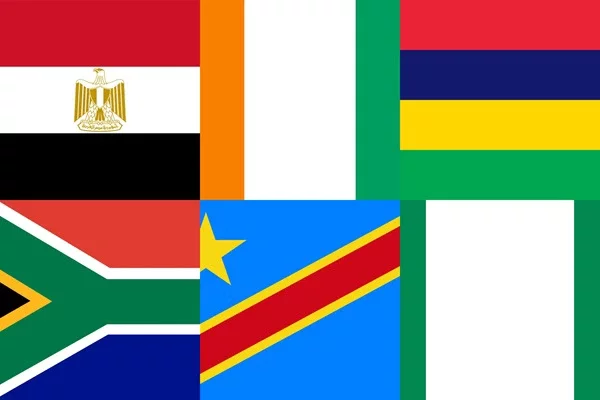
Carnivals are fantastic explosions of colour, music, and parades celebrated throughout the world. Some carnival events stand out as truly wild and eccentric, pushing the boundaries of festive fervour.
Carnival is a global sensation that is celebrated in over 50 countries around the world. Every carnival city has its own unique traditions and way of celebrating.
In a world that loves to revel in the spirit of celebration, from vibrant parades to eccentric costumes, here are the five wildest carnivals from around the world.
Rio de Janeiro Carnival, Brazil
The Rio de Janeiro Carnival in Brazil is a festival held every year before Lent, it is considered the biggest carnival in the world, with two million people per day on the streets. The first Carnival festival in Rio occurred in 1723. The carnival is an explosion of colours, music, and samba.
The Rio de Janeiro Carnival in Brazil is an annual festival celebrated before Lent, renowned as the world's largest carnival, attracting two million people daily to its vibrant streets. Its inaugural celebration dates back to 1723 and is characterised by an explosion of colours, lively music, and the rhythmic beats of samba.
This carnival is held annually in February, with this year's edition to begin on February 9-17, 2024 with millions of locals and tourists flocking to the streets to witness the elaborate floats, glittering costumes, and infectious energy. Samba schools compete fiercely in the Sambadrome, showcasing their creativity and passion in a spectacle that leaves spectators in awe.
Besides the samba parade, Rio is famous for its crazy street parties. Over five hundred street parties take place across the city of Rio during carnival, some are attended by a few hundred and millions attend some.
The Notting Hill Carnival, London
The annual event takes place in the Notting Hill area of London, England. Is one of the largest street festivals in the world and is known for its vibrant and colourful celebration of Caribbean culture, particularly the Trinidadian and Tobagonian communities to showcase and celebrate their rich cultural heritage.
The parade starts on Great Western Road, travels through the streets of Notting Hill, and culminates in Westbourne Park. The Notting Hill Carnival is a 3-day annual African-Caribbean event that takes place on the streets of Notting Hill, London every late August bank holiday weekend. In 2024 will likely fall on August 24 to 26, with the Parade on Monday.
Mas or Masquerade bands are at the heart of all things Notting Hill Carnival, particularly during the parade. Mas bands are made up of individuals wrapped in elaborate and colourful costumes, dancing and performing to the music as they parade the streets. Multiple Mas bands take to the streets throughout the Carnival. They have different requirements to join. Those interested in participating can peruse the bands and see if they want to join. Bands can include up to 300 people.
Venice Carnival, Italy
The Venice Carnival, also known as Carnevale di Venezia in Italian, is one of the most famous and extravagant carnivals in the world. It takes place in the historic city of Venice, Italy, and is renowned for its elaborate masks, costumes, and festivities.
The origins of the Venice Carnival can be traced back to the 11th century when the Venetian Republic was a major maritime power. The carnival is a period of revelry and celebration before the austerity of Lent, a period of fasting and penance observed by Christians leading up to Easter.
The Venice Carnival typically starts two weeks before Ash Wednesday, which marks the beginning of Lent. The dates can vary from year to year, as they are determined by the Christian liturgical calendar. However, the 2024 Venice Carnival theme is travel, discovery, and encounters with previously only imagined worlds and will be held from January 27- February 13, 2024.
One of the distinctive features of the Venice Carnival is the elaborate masks and costumes worn by participants. Traditionally, masks served to conceal the wearer's identity and allowed people to engage in activities that might otherwise be considered socially unacceptable. The masks come in various styles, such as the Bauta, Colombina, and Moretta, each with its history and significance.
Mardi Gras in New Orleans
Mardi Gras has its roots in mediaeval Europe and has been celebrated in Louisiana since the late 17th century when the region was under French colonial rule. The first organised Mardi Gras parade in New Orleans took place in 1837, and the tradition has continued to evolve since then.
Mardi Gras is famous for its elaborate and colourful parades featuring floats, marching bands, and costumed participants. Numerous krewes (social clubs that organise parades and events) host these parades throughout the city. Some of the most well-known krewes include Rex, Zulu, Endymion, and Bacchus.
One of the unique aspects of Mardi Gras is the tradition of "throws" - items tossed by float riders to spectators. Common throws include plastic beads, doubloons (metal coins), cups, and small toys. Spectators often try to catch as many throws as possible, leading to a festive and lively atmosphere.
Mardi Gras, also known as Fat Tuesday, falls on the day before Ash Wednesday, which marks the beginning of the Christian season of Lent. The date varies each year but is usually in February or March, and in 2024 the carnival will be on February 13, 2024.
Calabar Carnival, Nigeria
The Calabar Carnival is an annual cultural festival held in Calabar, the capital city of Cross River State in Nigeria. It is one of the largest street festivals in Africa and has gained international recognition for its vibrant and colourful celebrations.
The Calabar Carnival was first held in 2004 as part of the vision of Donald Duke, former governor of Cross River State to make Calabar a major tourist destination in Nigeria, and was designed to showcase the rich cultural heritage of the people of Cross River State and Nigeria as a whole.
Each year, the carnival has a specific theme that reflects a particular aspect of Nigerian culture, history, or contemporary issues. Themes in the past have included "Climate Change," "Africanism," and "Migration." With last year's theme called "Season of Sweetness."
The carnival features a wide range of events, including a street parade, cultural dances, musical performances, beauty pageants, and a Christmas village. The street parade is a major highlight, with colourful floats, elaborate costumes, and participants from various cultural groups. It attracts both locals and tourists.
The carnival includes the "Miss Africa" beauty pageant, where contestants from different African countries compete for the crown. The pageant aims to promote African beauty, intelligence, and culture which typically takes place in December, with events spanning the entire month. The climax of the festival usually occurs on the 26th and 27th of December.
















Comments